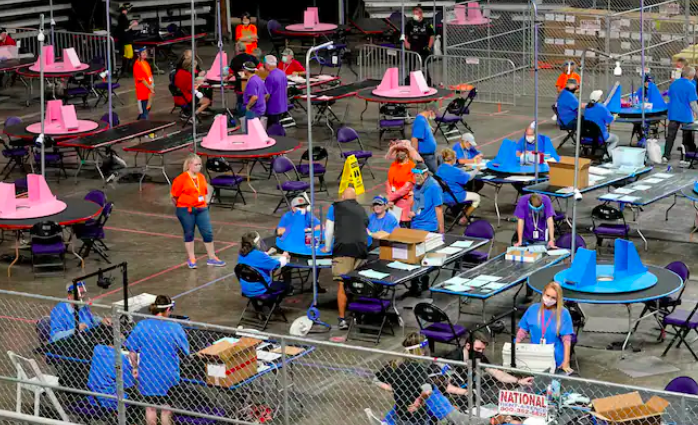Democrats characterized the far-reaching elections overhaul as the civil rights battle of modern times. Republicans called it a power grab that would put their party at a permanent disadvantage.
From the New York Times:
Senator Roy Blunt of Missouri, the top Republican on the Senate Rules Committee, which convened the hearing, said states were taking appropriate steps to restore public confidence after 2020 by imposing laws that require voters to show identification before voting and limiting so-called ballot harvesting, where others collect voters’ completed absentee ballots and submit them to election officials. He said that if Democrats were allowed to rush through changes on the national level, “chaos will reign in the next election and voters will have less confidence than they currently do.”
The suggestion piqued Senator Amy Klobuchar, Democrat of Minnesota and the committee chairwoman, who shot back that it was the current elections system — an uneven patchwork of state laws and evolving voting rules — that had caused “chaos” at polling places.
“Chaos is what we’ve seen in the last years — five-hour or six-hour lines in states like Arizona to vote. Chaos is purging names of longtime voters from a voter list so they can’t go vote in states like Georgia,” she said. “What this bill tries to do is to simply make it easier for people to vote and take the best practices that what we’ve seen across the country, and put it into law as we are allowed to do under the Constitution.”
With Republicans unified against them, Democrats’ best hope for enacting the legislation increasingly appears to be to try to leverage its voting protections — to justify triggering the Senate’s so-called nuclear option: the elimination of the filibuster rule requiring 60 votes, rather than a simple majority, to advance most bills.
Even that may be a prohibitively heavy lift, though, at least in the bill’s current form. Liberal activists who are spending tens of millions of dollars promoting it insist that the package must move as one bill. But Senator Joe Manchin III, a centrist West Virginia Democrat whose support they would need both to change the filibuster rules and to push through the elections bill, said on Wednesday that he would not support it in its current form.
Speaking to reporters in the Capitol, Mr. Manchin said he feared that pushing through partisan changes would create more “division” that the country could not afford after the Jan. 6 attack, and instead suggested narrowing the bill.
Read the full story here.


